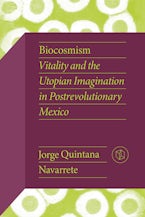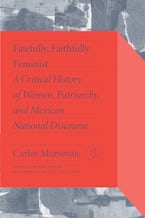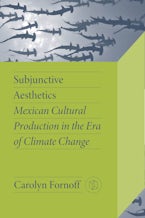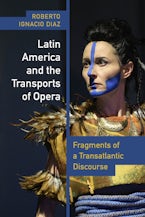- Home
- Manifold Destiny

Manifold Destiny
Arabs at an American Crossroads of Exceptional Rule
Electronic open-access edition funded by the National Endowment for the Humanities.
At the border where Brazil, Paraguay, and Argentina meet under the scrutiny of the US and Mercosur (the large South American trade bloc), Arabs have long fulfilled what author John Tofik Karam calls a "manifold destiny." Karam casts Lebanese, Palestinians, and Syrians at this American border as circumstantial protagonists of a hemispheric saga.
For the more than six decades since they started settling at the trinational border between Brazil, Paraguay, and Argentina, Arabs have animated the hemisphere. Their transnational economic and social projects reveal a heretofore unacknowledged venue of exceptional rule in which the community accommodates and abides multiple states' varied suspensions of norms and laws. Arabs set up businesses and community centers at the border under authoritarian military governments between the 1950s and 1980s; thereafter, when denied full democratic enfranchisement, they instead underwent increasing surveillance from the 1990s to today. Karam reveals an unfinished history of exceptional rule that Arabs accommodate from an authoritarian past to a counterterrorist present.
Karam's riveting account draws on anthropological and historical research from each side of this trinational South American border, as well as from the US—where government bureaucrats still suspect Arabs at the border of would-be-terrorist subversion. Offering a fresh understanding of the hemisphere, Manifold Destiny brings the transnational turn of Middle Eastern studies to bear upon the fields of American studies, Brazilian studies, and Latin American studies.
At the border where Brazil, Paraguay, and Argentina meet under the scrutiny of the US and Mercosur (the large South American trade bloc), Arabs have long fulfilled what author John Tofik Karam calls a "manifold destiny." Karam casts Lebanese, Palestinians, and Syrians at this American border as circumstantial protagonists of a hemispheric saga.
For the more than six decades since they started settling at the trinational border between Brazil, Paraguay, and Argentina, Arabs have animated the hemisphere. Their transnational economic and social projects reveal a heretofore unacknowledged venue of exceptional rule in which the community accommodates and abides multiple states' varied suspensions of norms and laws. Arabs set up businesses and community centers at the border under authoritarian military governments between the 1950s and 1980s; thereafter, when denied full democratic enfranchisement, they instead underwent increasing surveillance from the 1990s to today. Karam reveals an unfinished history of exceptional rule that Arabs accommodate from an authoritarian past to a counterterrorist present.
Karam's riveting account draws on anthropological and historical research from each side of this trinational South American border, as well as from the US—where government bureaucrats still suspect Arabs at the border of would-be-terrorist subversion. Offering a fresh understanding of the hemisphere, Manifold Destiny brings the transnational turn of Middle Eastern studies to bear upon the fields of American studies, Brazilian studies, and Latin American studies.
Move Over Manifest Destiny
Part I: Authoritarian Legacies (1960s-1990s)
Chapter One: Semiperipheral Marches
Chapter Two: Third World Limits
Chapter Three: Test of Faith
Part II: Counterterrorist Liaisons (1990s-2010s)
Chapter Four: Free Trade Security
Chapter Five: Beginning “War Without End”
Chapter Six: Speculative Accounts
Make America Exceptional Again?
Acronyms
References
Endnotes
Part I: Authoritarian Legacies (1960s-1990s)
Chapter One: Semiperipheral Marches
Chapter Two: Third World Limits
Chapter Three: Test of Faith
Part II: Counterterrorist Liaisons (1990s-2010s)
Chapter Four: Free Trade Security
Chapter Five: Beginning “War Without End”
Chapter Six: Speculative Accounts
Make America Exceptional Again?
Acronyms
References
Endnotes
John Tofik Karam is the director of the Lemann Center for Brazilian Studies at the University of Illinois, Urbana-Champaign, where he is also an associate professor in the Department of Spanish and Portuguese.
"A superb reading of Arab Latin America, Manifold Destiny explores the semi-peripheral crossroads zone inhabited and animated by Arabs along the shared tri-national borders between Brazil, Paraguay, and Argentina. Offering a rigorous synthesis of ethnic studies, area studies, and transnational studies, John Karam insightfully examines this dynamic geopolitical landscape, constructing a palpable narrative of Arab diasporic history within and beyond the Americas."
—Ella Shohat, author of Taboo Memories, Diasporic Voices
"A groundbreaking, rigorous analysis of a group of migrants that has been overly scrutinized by intelligence operatives and the media yet understudied by scholars. Extremely timely and likely to remain relevant for a long time."
—Christina E. Civantos, author of Between Argentines and Arabs: Argentine Orientalism, Arab Immigrants, and the Writing of Identity
Manifold Destiny is available as an open-access ebook, thanks to a grant from the Fellowships Open Book Program through the National Endowment for the Humanities.
This NEH initiative allows scholarly presses to make recent monographs freely available online. Vanderbilt UP has made Manifold Destiny available for free through all major ebook vendors and is housing a PDF of the book on our website to ensure that anyone who wants to read a copy of the book can do so at no cost. This open-access edition is published under a Creative Commons license, rendering it free for download and distribution.
More information about the OA ebook edition is available at vanderbiltuniversitypress.com/resources/manifold-destiny-open-access/.











